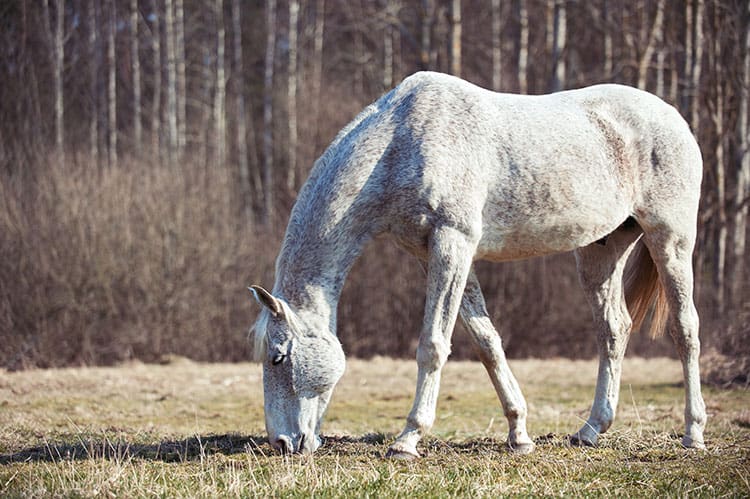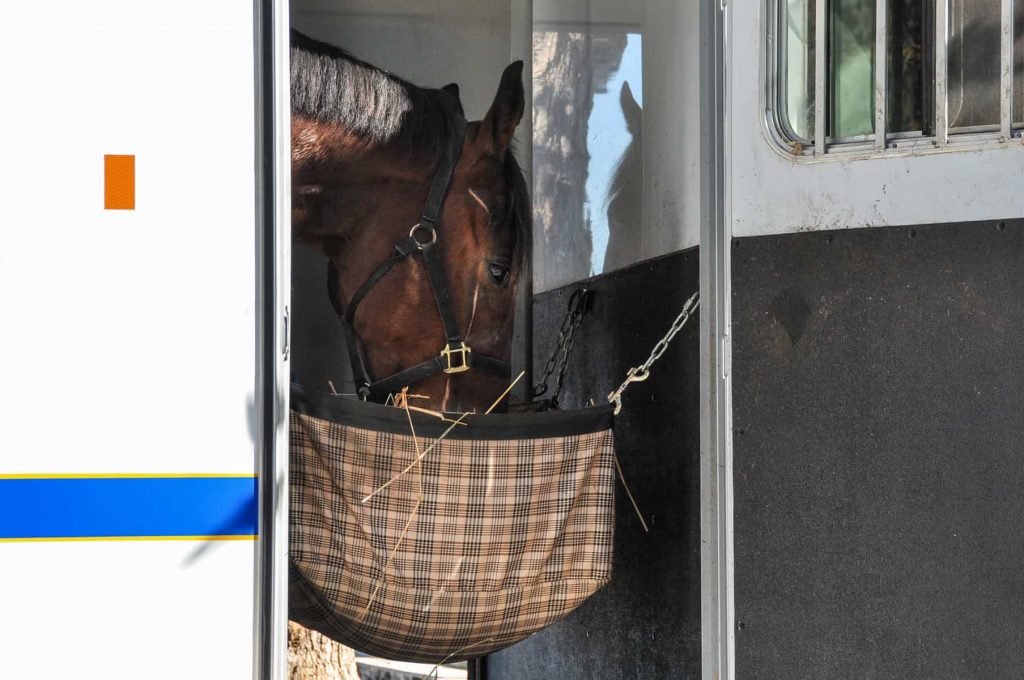
Managing the Aging Competition Horse
Dr. Anna Pesta-Dunaway talks about the change in nutritional needs that occurs as horses age and how to manage it if they are competing.

Dr. Anna Pesta-Dunaway talks about the change in nutritional needs that occurs as horses age and how to manage it if they are competing.

Equine athletes have specific nutritional needs that must be met to keep them performing their best. Sponsored by Purina.

Dr. Lori Bidwell lists pain relief medications and therapies that can help horses with acute or chronic laminitis.

When a pain medication or strategy is no longer providing a senior horse with relief, the kindest option might be euthanasia.

While NSAIDs are valuable tools for controlling horses’ pain and inflammation, they do come with risks.

Dr. Uneeda Bryant describes how veterinary pathologists safeguard horse populations, determine causes of death, and protect the human-animal bond.

Dr. Clair Thunes offers advice for preventing colic when the weather turns cold.

A veterinarian explains how to recognize when your horse is in pain.

Learn about the signs of pain in horses—and how sedation can help—in this archived podcast.

Dr. Lutz Goehring weighs in on what researchers have learned about equine herpesvirus-1, how it spreads, and how to prevent infection.

Dr. Brian Nielsen describes what osteochondritis dissecans is, what causes it, and how it can affect horses during their lifetimes.

A veterinarian describes some subtle signs to watch for that might point toward your horse having joint discomfort.

A veterinarian explains what to pay attention to when treating a horse that has PPID or EMS for joint discomfort.

A veterinarian recommends starting with a forage-based diet for optimal equine joint health.

Find out how to keep your horse’s joints feeling and moving their best in our podcast. Sponsored by Boehringer Ingelheim.

A veterinarian says both age and breed can affect a horse’s predisposition to insulin resistance.
Stay on top of the most recent Horse Health news with
"*" indicates required fields